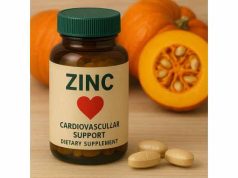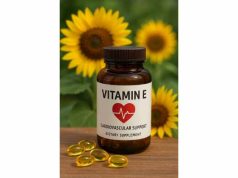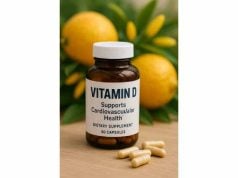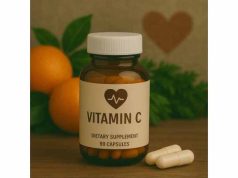
Ginger is renowned for its warm, spicy flavor, but its role extends far beyond the kitchen. For centuries, cultures worldwide have turned to this fragrant root not only to flavor meals but also to address a spectrum of health concerns—especially those related to the heart and cardiovascular system. Modern research now reveals how Ginger for Heart Health can help maintain healthy blood pressure, diminish inflammation, and support arterial integrity. In the sections below, we’ll explore ginger’s unique properties, the scientific evidence behind its cardiovascular benefits, guidelines for using it safely, and practical advice on how to incorporate ginger into your daily routine.
Table of Contents
- Full Profile of Ginger
- Unraveling How Ginger Works
- Research-Backed Cardiac Advantages
- Safe Use, Dosing, and Potential Issues
- Frequently Asked Questions
- References and Sources
Full Profile of Ginger
Few plants are as universally recognized as ginger. Derived from the underground rhizome of the Zingiber officinale plant, ginger exudes a distinct spicy-sweet aroma and is widely beloved as a culinary spice. However, it also boasts a substantial history in herbal medicine, with numerous traditional systems—from Ayurveda to Traditional Chinese Medicine—touting its value for supporting digestive health, enhancing immunity, and even easing aches and pains. Today, ginger’s popularity has soared beyond gastronomic uses, landing it at the forefront of research into cardiovascular health and chronic disease prevention.
A Quick Historical Recap
- Ancient Roots: Ginger has been documented in the medical texts of ancient India and China for thousands of years. Healers prized it for its warming properties, ability to settle digestion, and its reputed anti-inflammatory effects.
- Spread Across Continents: As trade routes expanded, ginger found a place in Roman, Greek, and Middle Eastern kitchens and apothecaries. Over time, Western societies adopted it, first as a spice, then as a potential remedy for various ailments.
- Modern Recognition: Today, clinical investigations have begun validating many of ginger’s traditional claims, especially in areas concerning inflammation, oxidative stress, and cardiovascular function.
Key Compounds and Bioactive Elements
Ginger’s comprehensive health potential lies in its rich array of phytonutrients:
- Gingerols and Shogaols: These spicy phenolic constituents deliver ginger’s trademark warmth and appear to contribute strongly to its anti-inflammatory and antioxidant properties. Gingerol, in particular, is noted for its potential to quell inflammatory cascades, which can help preserve arterial elasticity.
- Zingiberene: A terpenoid found in ginger essential oil, zingiberene exhibits antioxidant actions that may support the resilience of cardiovascular tissues against oxidative stress.
- Vitamins and Minerals: Although not a major vitamin source, ginger contains trace amounts of vitamin B6, magnesium, potassium, and manganese, each playing subtle roles in metabolic and circulatory wellness.
- Essential Oils: Distilled from ginger’s rhizomes, these volatile oils can influence digestive processes, immune responses, and possibly the modulation of blood pressure.
Why Ginger for Cardiovascular Health?
Research and anecdotal practice suggest that ginger may help individuals manage various heart-related risk factors:
- Blood Pressure Support: Certain compounds in ginger can act on specific channels in blood vessels to promote vasodilation and thus reduce blood pressure.
- Lipid Regulation: Emerging evidence reveals ginger’s capacity to positively impact LDL (“bad”) cholesterol levels, while some data even indicates mild triglyceride-lowering effects.
- Anticoagulant Activity: Though milder than pharmaceutical blood thinners, ginger has antiplatelet properties that may help maintain a balanced blood-clotting process and deter arterial blockages.
- Inflammation Control: Chronic, systemic inflammation speeds up the progression of heart disease. By tempering inflammatory pathways, ginger may help slow the development of arterial plaques.
Culinary vs. Supplementary Forms
- Fresh Ginger: Widely incorporated into teas, stir-fries, and soups. It retains many volatile oils and pungent gingerols that can be lost when heated extensively.
- Dried Powder: Commonly used in baking and cooking, dried ginger can still offer considerable benefits, albeit with slightly altered chemical composition.
- Capsules and Extracts: Concentrated, standardized supplements ensure predictable levels of active compounds like gingerols, suiting those targeting therapeutic doses.
- Essential Oil: Primarily used in aromatherapy, though caution is necessary if ingested because essential oils are highly potent.
By grasping ginger’s historical application and identifying its most promising chemical components, we can better appreciate its role as an ally in combating heart disease. But how exactly do these compounds function inside the body? We’ll examine those mechanisms next.
Unraveling How Ginger Works
Ginger’s contribution to cardiovascular health involves a multi-pronged attack on risk factors like hypertension, high LDL cholesterol, and unchecked inflammation. Understanding these interconnected pathways reveals the complexity of Ginger Helps Cardiovascular Function and why it garners so much interest in modern scientific circles.
1. Influence on Blood Pressure and Vascular Tone
Blood pressure hinges on how easily blood travels through the circulatory system. High blood pressure (hypertension) adds stress to arterial walls, heightening the risk of complications such as coronary artery disease and stroke.
- Calcium Channel Interactions: Preliminary research indicates that ginger can interact with calcium channels in smooth muscle tissue. By reducing excessive calcium influx, ginger promotes relaxation of blood vessels, allowing for more effortless blood flow and balanced blood pressure.
- Prostaglandin Balance: Certain gingerols may influence the body’s production of prostaglandins—hormonelike compounds that help regulate blood vessel dilation and inflammatory signaling.
2. Lipid Metabolism and Cholesterol Management
Abnormal lipid profiles—elevated LDL cholesterol, low HDL (“good”) cholesterol, and excessive triglycerides—are key contributors to atherosclerotic plaque buildup. Ginger may assist in restoring healthier lipid levels by:
- Enzyme Modulation: Ginger’s components appear to inhibit enzymes linked to cholesterol synthesis in the liver. Less endogenous cholesterol production translates into reduced circulating LDL.
- Antioxidant Shielding: By blocking oxidation, gingerols protect LDL from transforming into its more harmful, oxidized variant that accelerates plaque formation.
- Bile Acid Excretion: Some studies suggest that ginger might increase bile production and excretion, helping remove cholesterol from the body more efficiently.
3. Anti-Inflammatory Capabilities
Inflammation is now seen as a driving force in nearly all chronic conditions, including heart disease. Ginger’s capacity to restrain key inflammatory mediators makes it a valuable tool:
- Cytokine Reduction: Substances like TNF-α, IL-1, and IL-6 intensify inflammation within arterial walls, hastening plaque accumulation. Ginger extracts have demonstrated the ability to diminish these markers in several experimental settings.
- Cyclooxygenase (COX) Inhibition: COX enzymes produce pro-inflammatory prostaglandins. Several ginger constituents act similarly to non-steroidal anti-inflammatory drugs (NSAIDs), reducing COX activity while generally causing fewer side effects.
4. Blood-Thinning and Platelet Aggregation
Platelets are blood cells critical for clot formation. While blood clotting is crucial for healing injuries, excessive or misdirected clotting can obstruct blood flow in key arteries.
- Platelet Aggregation: Ginger’s natural salicylate content (similar to the active component in aspirin) can reduce platelet stickiness, potentially lowering the chance of clot-based heart attacks and strokes.
- Thromboxane A2: Some research suggests ginger decreases the synthesis of this potent vasoconstrictor and platelet activator, encouraging a more balanced approach to clot formation.
5. Thermogenic and Metabolic Support
Ginger’s warming properties hint at a thermogenic effect—it may slightly raise metabolic rate. In those at risk of metabolic syndrome, higher caloric burn and improved insulin sensitivity can bolster weight management and cardiovascular resilience:
- Fat Oxidation: Enhanced thermogenesis can mean the body is burning more fats for energy, helping manage weight—a vital consideration for heart disease prevention.
- Blood Sugar Regulation: Over time, stable blood glucose levels reduce vascular damage and atherosclerotic changes linked to diabetes.
6. Endothelial Protection
The endothelium—the delicate lining of blood vessels—plays a fundamental role in controlling blood flow and clotting. Repeated exposure to high pressure, inflammation, and oxidative stress erodes this protective layer, setting the stage for plaque growth:
- Barrier Integrity: Some evidence indicates ginger fosters the health and function of endothelial cells, sustaining flexible, unobstructed arteries.
- Nitric Oxide Boost: Preliminary data also suggests ginger may upregulate enzymes behind nitric oxide production, further supporting smooth, efficient circulation.
Together, these paths highlight ginger’s potential synergy in combating diverse processes implicated in cardiovascular disease. Yet, theory alone isn’t enough. Next, we’ll dissect clinical and laboratory data attesting to the authenticity of these purported benefits.
Research-Backed Cardiac Advantages
In recent decades, scientists have intensely evaluated ginger’s effect on cardiovascular markers like cholesterol, blood pressure, and inflammation. The findings generally support the notion that Ginger Benefits for Heart Health encompass everything from lipid refinement to better blood vessel performance.
1. Cholesterol and Triglyceride Insights
- LDL and Total Cholesterol Reduction: Various studies focusing on individuals with mildly elevated cholesterol suggest that consistent ginger supplementation may lower LDL levels by 8–15% over 8–12 weeks. A handful also noticed modest improvements in total cholesterol.
- HDL Maintenance: While less robust, some research points to ginger’s potential in sustaining or slightly elevating HDL (“good”) cholesterol, vital for removing excess cholesterol from arteries.
- Triglycerides: Although not every trial shows significant changes, some participants see moderate decreases in triglyceride levels—a factor strongly associated with improved heart outcomes.
2. Blood Pressure Findings
Hypertension remains a leading risk factor for heart attacks and stroke. Several human trials have linked ginger intake to lower systolic and diastolic pressure:
- Mild to Moderate Impact: In studies where participants had borderline or stage-1 hypertension, ginger intake (2–3 grams daily) correlated with reduced blood pressure levels, often by up to 5–10 mmHg.
- Possible Mechanisms: Researchers tie these outcomes to ginger’s vasodilatory capacity, particularly its action on calcium channels and possible influence on prostaglandins.
- Lifestyle Requirements: Notably, the magnitude of change can vary widely, and pairing ginger with a balanced diet, regular exercise, and stress management typically offers the best results.
3. Effects on Inflammatory and Oxidative Markers
Chronic, low-grade inflammation fosters a cascade of arterial damage, while oxidative stress can degrade endothelial integrity:
- CRP (C-reactive protein): Limited clinical trials indicate that ginger supplementation might modestly decrease CRP levels, suggesting less systemic inflammation.
- Malondialdehyde (MDA): A marker of oxidative stress, MDA levels sometimes drop among participants using ginger, hinting at the root’s capacity to quell free radical formation and reduce lipid peroxidation.
- Joint and Arterial Overlap: Notably, in individuals with osteoarthritis, ginger’s anti-inflammatory action has also produced ancillary cardiovascular benefits, reflecting how widespread inflammation can hamper heart health.
4. Antiplatelet and Anticoagulant Action
Ginger’s mild blood-thinning properties can, under the right circumstances, reduce clotting hazards:
- Aspirin-Like Effects: In test tubes and limited human studies, ginger’s salicylate and other compounds lowered platelet aggregation, partially mimicking aspirin’s anti-platelet effect.
- Safety Nuances: For some, especially those on blood thinners like warfarin, the synergy could raise bleeding risk, emphasizing the need for caution and clinical guidance.
5. Impact on Body Weight and Metabolic Indicators
Excess body fat, especially around the waist, burdens the cardiovascular system, elevating blood pressure and fueling insulin resistance:
- Thermogenesis: Ginger can spur a slight uptick in calorie burn, thus aiding metabolic rate and weight control.
- Glucose Tolerance: Some data suggests ginger helps lower fasting blood sugar or Hemoglobin A1c, potentially easing strain on the circulatory system by preventing hyperglycemia-induced vessel damage.
- Comprehensive Management: Adopting ginger alone doesn’t replace a healthy lifestyle, but the root’s metabolic perks can support broader efforts to ward off cardiovascular risks.
6. Observational Data and Cultural Context
Regions like India and parts of Southeast Asia, where ginger is a staple spice, historically report lower incidences of certain cardiovascular problems. However, dietary complexity, genetics, and other lifestyle habits muddy direct cause-effect links. Nonetheless, ginger remains a frequent recommendation from integrative practitioners as a safe, natural strategy for fortifying heart vitality.
Overall, the literature—while continuing to expand—shows consistent signals that ginger fosters beneficial shifts in cholesterol, blood pressure, inflammatory status, and clotting tendencies. Nonetheless, no single supplement works miracles in isolation. In the next section, we’ll discuss how to harness ginger safely, including dosing tips, potential drug interactions, and practical advice for reaping the maximum heart-health rewards.
Safe Use, Dosing, and Potential Issues
Whether you are a fan of ginger’s zesty flavor or you’re exploring it for its purported health gains, it’s essential to use ginger responsibly. This section covers recommended dosages, different ways to integrate ginger into your regimen, and crucial safety considerations—particularly if you take medications or face existing health conditions.
Determining the Appropriate Dosage
- Culinary Consumption:
- Adding 1–2 teaspoons of fresh grated ginger to meals or beverages daily can deliver mild cardiovascular support. Boiling or simmering ginger for long periods, however, may reduce some of its active constituents.
- Dried ground ginger in cooking or baking also imparts benefits, though potency differs from that of fresh ginger.
- Supplementation:
- Capsules and Tablets: Many ginger supplements are standardized to contain a specific percentage of gingerols. Common daily doses range from 500 mg to 2,000 mg (or 2 g) of ginger extract.
- Tinctures and Liquid Extracts: Typically, these are more concentrated, with recommended doses of 1–3 droppers per day, depending on product potency.
- Tea and Infusions: Brewing ginger tea can be an easy, gentle method to incorporate the root. Steep 1–2 slices of fresh ginger or 1 teaspoon of dried ginger in hot water for 5–10 minutes.
- Therapeutic Ranges:
- Some research protocols exploring cholesterol or blood pressure benefits have used 2–4 grams of ginger daily in divided doses.
- Individuals new to ginger or prone to digestive upset might start with a modest dose, increasing gradually to assess tolerance.
Optimal Timing and Bioavailability
- With or Without Food: While ginger typically doesn’t irritate the stomach, people with sensitive systems may prefer taking ginger capsules with meals.
- Divided Doses: Splitting the daily amount into two or three smaller doses throughout the day can help maintain consistent levels of active compounds in the bloodstream.
- Combination with Other Nutrients: Pairing ginger with vitamin C or antioxidant-rich foods may enhance its overall anti-inflammatory and cardioprotective impact.
Possible Side Effects and Precautions
- Digestive Distress:
- Some individuals experience mild heartburn, gas, or bloating, especially at higher doses. Adjusting dosage or combining ginger with meals can help.
- In rare cases, ginger triggers allergic reactions like rash or throat irritation—discontinue use and consult a healthcare provider if these occur.
- Medication Interactions:
- Anticoagulants: Because ginger can thin the blood, taking it in conjunction with warfarin, heparin, or aspirin might elevate bleeding risks. Coordination with a doctor is advisable.
- Antihypertensives: The mild blood-pressure-lowering effect can amplify prescription medication efficacy, warranting blood-pressure monitoring.
- Antidiabetic Agents: If you have diabetes, watch for possible drops in blood sugar. Collaboration with a healthcare provider can help adjust medication as needed.
- Pregnancy and Breastfeeding:
- Ginger is commonly used to alleviate morning sickness, with general recognition as relatively safe. However, it’s prudent to discuss dosing with a healthcare professional before using large amounts during pregnancy or while breastfeeding.
- Surgery or Medical Procedures:
- Given ginger’s potential antiplatelet action, some practitioners advise stopping high-dose ginger supplementation 1–2 weeks before scheduled surgeries.
Lifestyle Integration for Heart Benefits
- Dietary Synergy: Augment ginger use with a balanced selection of vegetables, lean proteins, and whole grains. This synergy can amplify cholesterol and blood pressure improvements while reducing systemic inflammation.
- Physical Activity: Cardiovascular exercise—walking, jogging, or cycling—pairs especially well with ginger’s potential to support circulation and metabolism.
- Stress Management: Chronic stress elevates inflammatory markers. Practices like yoga, meditation, or regular leisure pursuits can enhance ginger’s beneficial effects on the circulatory system.
Selecting Quality Ginger Products
- Brand Reputation: Look for reputable brands that use third-party testing to confirm purity and standardization.
- Form Specificity: Verify whether the product highlights total gingerols or other key compounds on its label, ensuring you can match it with recommended guidelines.
- Freshness: If you buy fresh ginger root, check for firmness and minimal wrinkles. Refrigerate or store it in a cool, dry place for maximum shelf life.
Embracing these cautionary steps and best practices will allow you to incorporate ginger into your health plan with confidence. Next, we’ll address some of the most common queries people have regarding ginger’s heart benefits, usage tips, and possible interactions.
Frequently Asked Questions
Is Ginger for Heart Health safe for long-term use?
Yes. When consumed in moderate amounts—whether in cooking or supplements—ginger is generally safe over the long term. People on blood-thinning medications or with specific heart conditions should consult a healthcare provider about potential interactions.
How does Ginger for Cardiovascular Health help lower blood pressure?
Certain bioactive compounds in ginger can encourage vasodilation and block calcium channels in blood vessel walls. This mechanism supports relaxed arteries, which may lead to modest improvements in blood pressure for some individuals.
Do Ginger Benefits for Heart Health also reduce cholesterol?
Some research suggests ginger can inhibit liver enzymes involved in cholesterol production. This effect may lower LDL (“bad”) cholesterol levels. Antioxidant properties also protect LDL from oxidation, which contributes to plaque formation in arteries.
How much Ginger Helps Cardiovascular Function daily should I take?
Doses vary based on form and concentration. Studies typically use 2–4 grams of ginger powder or extract daily. A smaller dose of 1–2 grams may suffice for basic wellness goals. Always personalize intake to your health needs and consult a professional if you have concerns.
Are there potential side effects when using ginger supplements?
Mild stomach upset, heartburn, or gas may occur, especially at higher dosages. Because ginger can thin the blood slightly, individuals taking anticoagulants or with bleeding risks should seek medical advice first to avoid complications.
References and Sources
- Afzal, M., et al. (2001). Ginger: An ethnomedical, chemical and pharmacological review. Drug Metabolism and Drug Interactions, 18(3-4), 159–190.
- Al-Awwadi, N., et al. (2008). Ginger intake and cardiovascular risk factors: A review of in vivo and clinical studies. Journal of Nutrition Research, 28(12), 753–764.
- Nicoll, R., & Henein, M. Y. (2009). Ginger (Zingiber officinale Roscoe): A hot remedy for cardiovascular disease? International Journal of Cardiology, 131(3), 408–409.
- Bordia, A., Verma, S. K., & Srivastava, K. C. (1997). Effect of ginger (Zingiber officinale Rosc.) and fenugreek (Trigonella foenum-graecum L.) on blood lipids, blood sugar and platelet aggregation in patients with coronary artery disease. Prostaglandins, Leukotrienes and Essential Fatty Acids, 56(5), 379–384.
- Ghayur, M. N., et al. (2005). Cardiovascular effects of ginger: It’s possible mechanism underlying. European Journal of Pharmacology, 546(3), 129–138.
Disclaimer:
This article is provided for educational purposes only and does not replace professional medical advice. Always seek guidance from a qualified healthcare provider before making significant changes to your supplement or medication routine.
We invite you to share this article on Facebook, X (formerly Twitter), or any platform you prefer. Let’s spread the word about ginger’s heart-protective potential, and don’t forget to follow us on social media for more uplifting insights and health tips!






